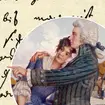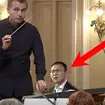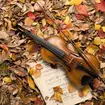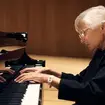How To Buy Tchaikovsky's Violin Concerto In D
“Music that stinks in the ear!” That is how one critic described this concerto after its first performance. A harsh comment, you may say, but the Tchaikovsky Violin Concerto had a somewhat troublesome beginning.
The 38-year-old Piotr Ilyich Tchaikovsky sketched out his Violin Concerto in just 11 days. He scrapped his original plans for the second movement, so the version we now know and love is in fact a rewrite that he composed in a single day. A couple of weeks later, the scoring was complete in readiness for the premiere.
However, the dedicatee, renowned soloist Leopold Auer, deemed the piece “unviolinistic” and refused to play it. Other violinists felt the same, and it wasn’t until three years later that Adolph Brodsky gave the work its first performance, on 4 December 1881 in Vienna.
One of the greatest violinists of all time, Jascha Heifetz, who was in fact taught by Auer, recorded the concerto in 1957. He demonstrates his fine musicianship and virtuosic qualities in a sweet-toned, thrilling reading, albeit caught within the limitations of the era’s recording.
The Korean violinist Kyung Wha Chung’s first account, made in 1970 with the LSO under André Previn, is spontaneous and energetic. The second movement Canzonetta is beautifully interpreted, but although Chung brings off the demanding outer movements admirably, there is a tendency for her playing to be mannered at times.
Sarah Chang turns in a commanding reading, self assured and full of vibrancy – and all this at the age of 11! However, the dance and gypsy tunes in the final movement tend to lack the flair of other performances, such as Viktoria Mullova’s of 1986, which marked her debut as a recording artist and was the trigger for her successful career.
Mullova’s account is full of excitement, tinged with a hint of melancholy, especially in the opening movement.
If nothing less than a state-of-the-art recording will do, then the German violinist Christian Tetzlaff holds the key. His performance is stylish, expressive and magnificently recorded. It’s fast and furious at times but doesn’t lack the intensity and passion required – an immensely enjoyable disc.
However, the recording that should be on every record collector’s shelf is the one we began our survey with: Jascha Heifetz’s of 1957. It is absolutely outstanding and has all the attributes to make it a sure-fire winner for many years to come.
























